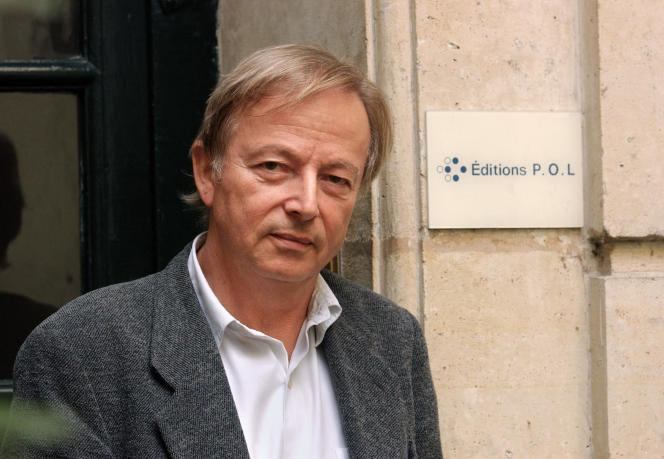Did he know we would miss him so much? To his loved ones, of course. To its authors, of course. And to all those who, having just entered a bookstore, scanned the tables to see if, under this sober, but immediately identifiable cover, he had published new books.
Paul Otchakovsky-Laurens died on January 2, 2018, at the age of 73, but everyone here, in this very beautiful episode of “A Whole Life”, remembers. His wife, painter and (marine) writer Emmelene Landon remembers. Reading, everywhere, manuscripts. Of his calls, from 7 a.m., to his best friend and partner Jean-Paul Hirsch. From his incredible sense of celebration. Of his voice.
Was it to accompany vocals that he became a publisher? It took him two documentaries (Sablé-sur-Sarthe, Sarthe, in 2007, and Editeur, ten years later) to provide some answers. And first: a childhood in Sarthe, an adoption. And books, which save lives. After an internship at Christian Bourgois, Paul Otchakovsky-Laurens created the “Textes” collection at Flammarion, then, at Hachette, “P.O.L”, which became the name of his house in 1983.
“Appetite” and “Impatient”
He said, “I strive to publish the books that I wish I had written. After Georges Perec and Marguerite Duras, who offered him La Douleur (1985) – “I felt like I was holding the Blessed Sacrament” – he published Robert Bober, Charles Juliet, Mathieu Lindon, Valère Novarina, Jean Rolin . By his own admission, he practiced his profession in a “subjective, sentimental, jealous, exclusive, unreasonable” way. “He wanted to publish a writer, not a book,” says Marie Darrieussecq. It put him in a trance when we made incursions elsewhere. »
Emmanuel Carrère remembers how much Paul “loved the diversity of what he published as much as he hated review boards”. He also remembers that there was “something magnificent in his impatience, his appetite”: “If I gave him a manuscript at 3 p.m., he would call me at 3 a.m. We felt his desire and this rare thing – which Frédéric Boyer also has – to treat authors who sold few books with the same consideration as those whose sales keep the house running. He also remembers that P.O.L preferred not to publish foreign literature “as he could not fully exercise his taste”.
His taste. That also of Frédéric Boyer who, since 2018, has been running the house. Frédéric Boyer also remembers. Of this call from Paul Otchakovsky-Laurens – almost twenty years ago – who invites him to have a drink. And asks him if he would agree to take care of the house if something were to happen to him. He remembers Paul’s words: “Anyway, you’ll do what you want, and that’s what’s important.” »
“He was not in nostalgia, he was not in the transmission in the strict sense, that is to say in the sense of preserving something, assures Frédéric Boyer. Paul was anything but a conservative. He was someone who liked novelty, who liked the outburst, who liked disruption. Me, unlike him because I am not him and at the same time in his place, I have imposed on myself a duty of inheritance. »
It is with these words, of rare elegance, followed by those of Emmelene Landon and the voice of Paul Otchakovsky-Laurens, that this program ends, a real gift.

















